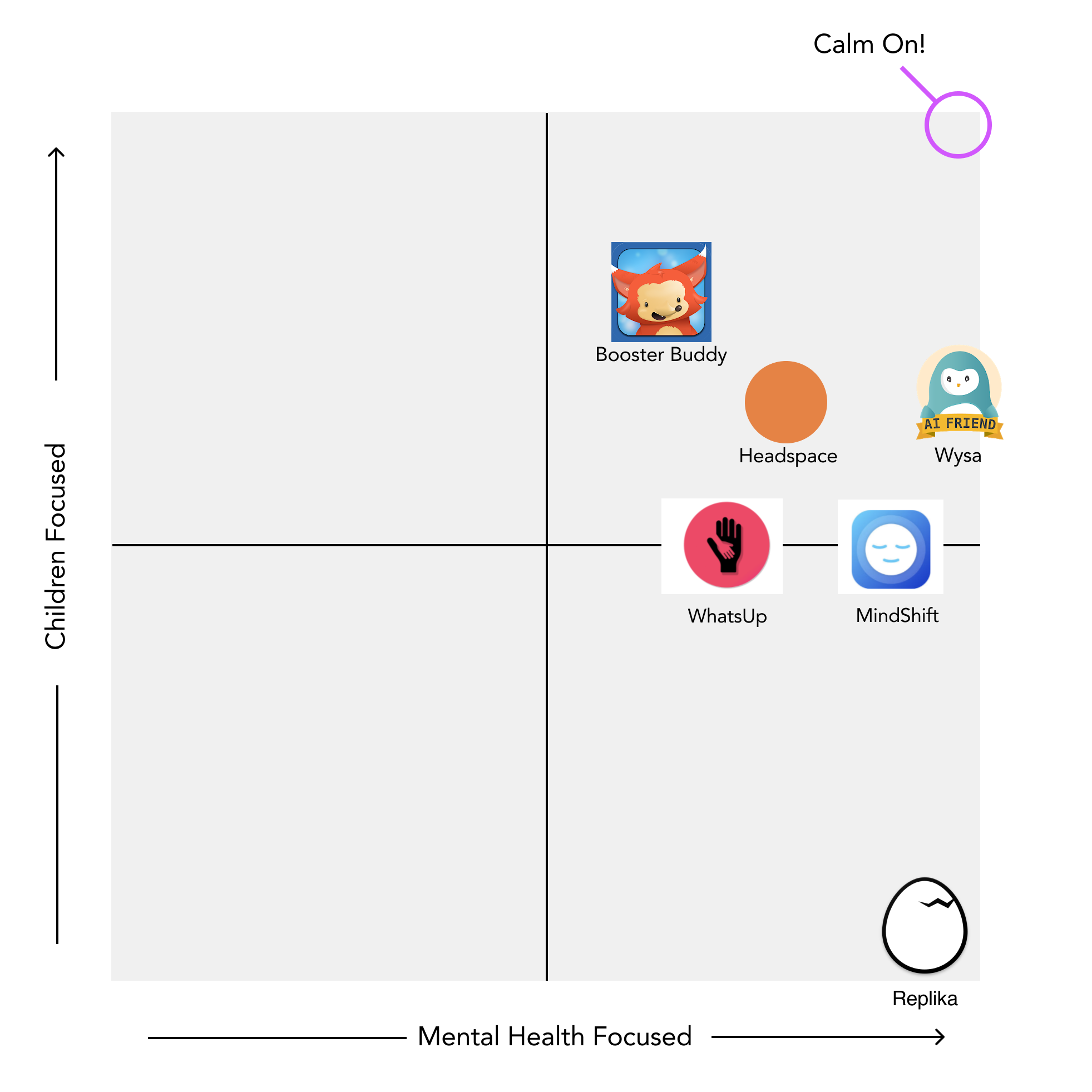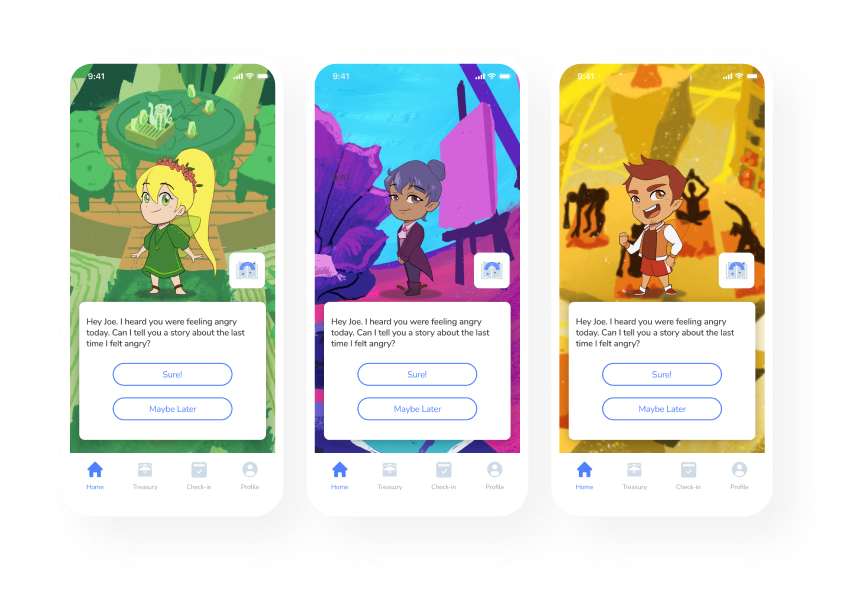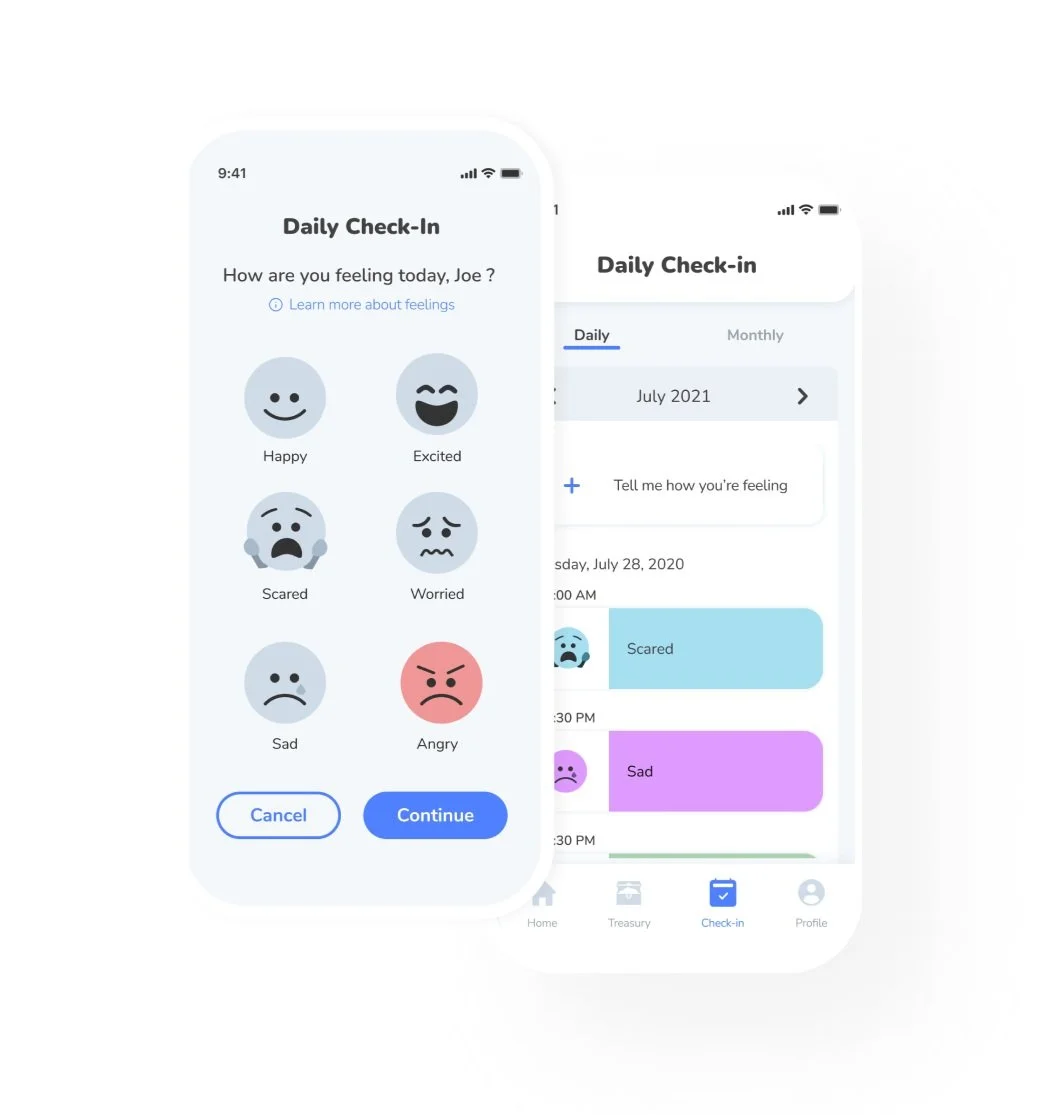
Calm On!
“Calm On!” is a mental health and wellness app for youths ages 6-11. Our mission was to introduce mental health awareness to children through education, healthy habits, and engaging activities. After winning second place in the UCSF COVID-19 Hackathon, we decided to enter the COVID Global Hackathon 2.0 for Social and Mental Health where we got an honorable mention. After seeing the outpour of support, we took the award money to invest in the app to help make it a reality.
Duration
June 2020 - May 2021
Role
UI/UX Designer, Graphic Designer
Tools
Figma, Illustrator
Recognition
UCSF COVID-19 Hackathon 2nd Place Winner
COVID-19 Global Hackathon 2.0 Honorable Mention
Skills
Wireframing, Prototyping, Experience Design, Design Systems, Logo Design
Background
Our team was to create a solution to a health-related problem caused by the COVID-19 pandemic for the UCSF hackathon. With research, we found that youth were largely affected by the new lifestyle so we decided to create a space to normalize and educate children on mental health by gamifying lessons on how to cope with their feelings. What started out as a hackathon project soon became more than what we had ever imagined after receiving an outpour of support from the community.
Our interactive app starts with a story based on the experience of a child who feels alone during the lockdown due to the pandemic. They suddenly see a light that opens a portal into a world where they are introduced to three life coaches: Flynn, Sprite, and Aurora, who provide them with storylines, quests, and activities.
Research
We began our research by finding information about how the pandemic has affected children's mental health and behaviors through academic articles.
“roughly 70% of Americans have experienced moderate to severe mental distress- triple the amount seen in 2018…most prominent in young adults and children” (Twenge et al. 2020)
“evidence of immediate collateral consequences of the COVID-19 outbreak, demonstrating an adverse impact on the movement and plate behaviours of children and youth” (Moore. S. A. Faulkner G. Rhodes. R.E et al 2020)
To further our research, we conducted surveys with children and parents to obtain qualitative and quantitative information which improved our understanding of their feelings and habits.
Competitive Analysis
We found and compared 5 applications with concepts or lesssons most similar to the one we were trying to develop and concluded that although they aimed to promote mental health, none were directed toward young children.
Using the surveys we conducted, we distinguished which features from those apps would benefit possible users most.
Lean Personas
Design Studio
During our numerous weekly Zoom meetings, we ran design studios with different teams (animation, design, business) to consolidate our ideas. We individually designed low-fidelity wireframes and discussed which would be most user-friendly for our target audience.
Initial Designs
MVP
Our team has grown as we recruited mental health professionals as advisors to validate our content and designs. They have provided us with feedback and suggestions to constantly improve our app. We plan to release our MVP soon. Here are some of the designs in the works! A Prototype sneak peek can be viewed here.
Results & Key Takeaways
One of the significant results of the app's introduction was increased awareness of mental health issues among youths. The app's interactive and engaging interface helped youths learn about mental health in a fun and interactive way, leading to a better understanding of the importance of taking care of their mental health. Additionally, the app's healthy habit reminders and activities helped them develop healthy habits and incorporate them into their daily lives.
Another significant result of the app's introduction was increased engagement among children. The app's design created a safe space for youth to engage through various activities, games, and interactive quizzes, and simultaneously helped them learn about mental health.
Key Takeaways: The following key takeaways emerged from the app's design and implementation process:
User-centric design is essential for creating effective and engaging mental health apps for youth. The app's design focused on meeting the needs of the targeted audience and creating an engaging experience for them.
By introducing mental health education to children at a young age, we can set a foundation for a healthier mind and well-being in adulthood.
Incorporating healthy habits into an app can help children develop healthy habits and incorporate them into their daily lives. The app's reminders and activities helped children develop healthy habits, such as exercise, meditation, and healthy eating.
In conclusion, the mental health awareness app's design and implementation led to positive results that can be applied to future mental health apps for children, a group that has long been overlooked. The app's user-centric design, educational content, healthy habit reminders, and engaging activities helped children develop a better understanding of mental health and incorporate healthy habits into their daily lives.






